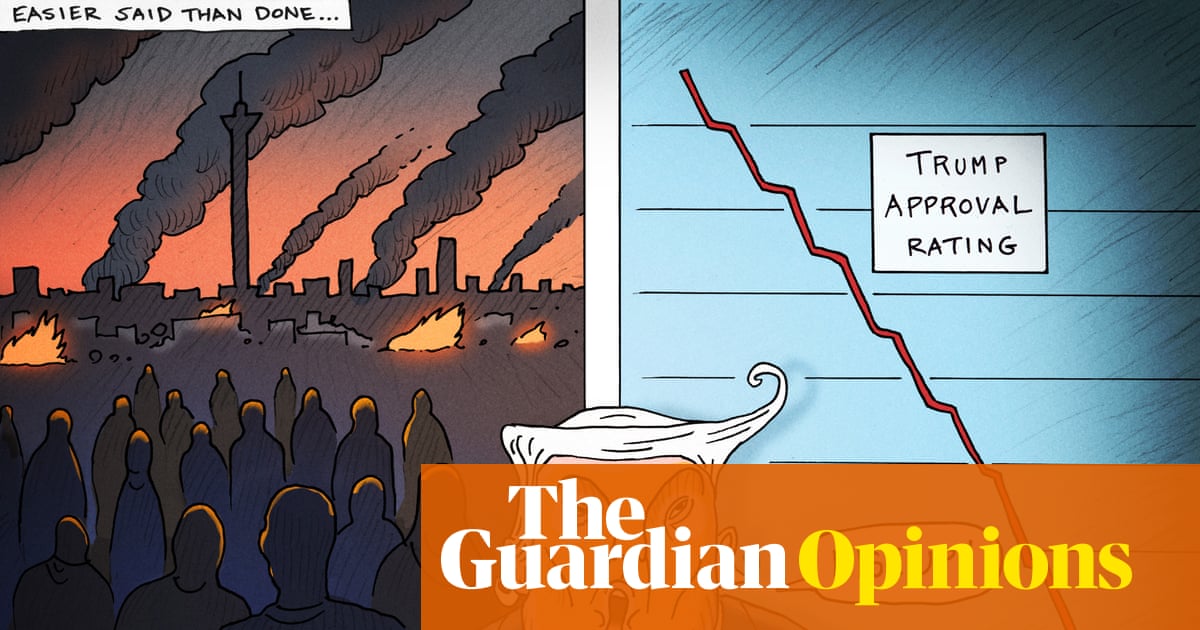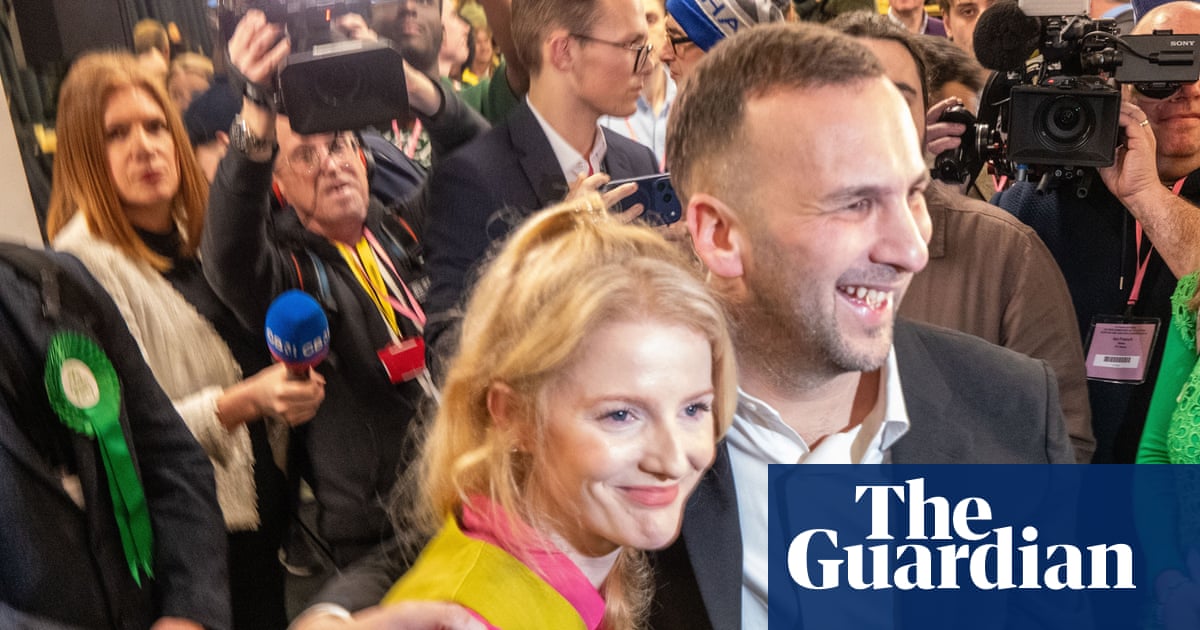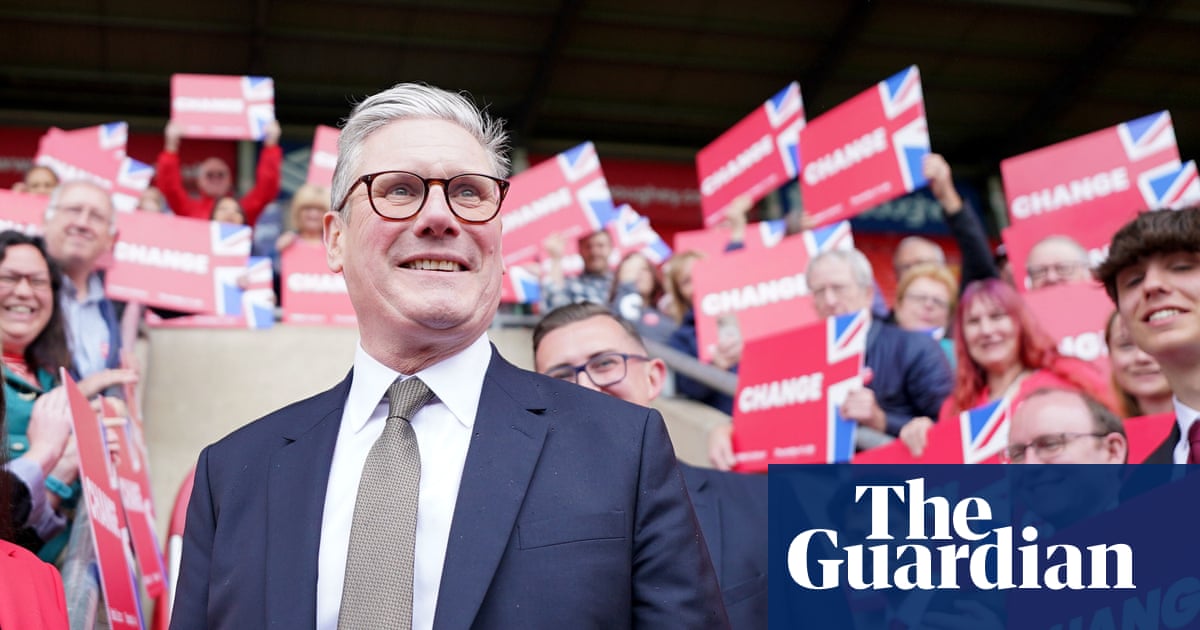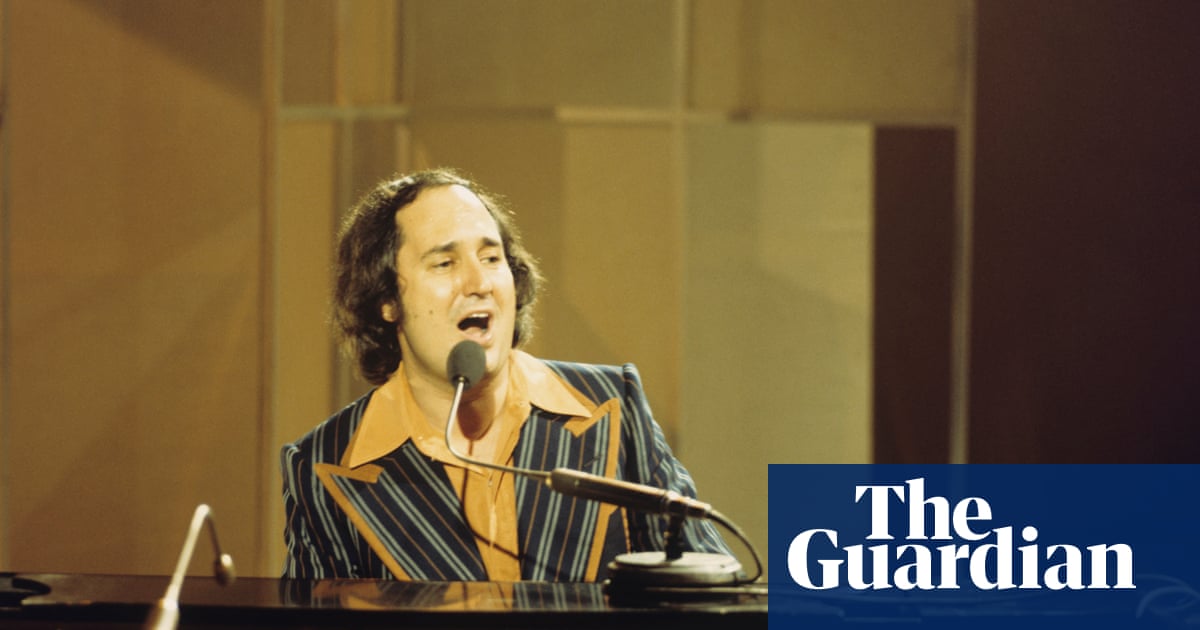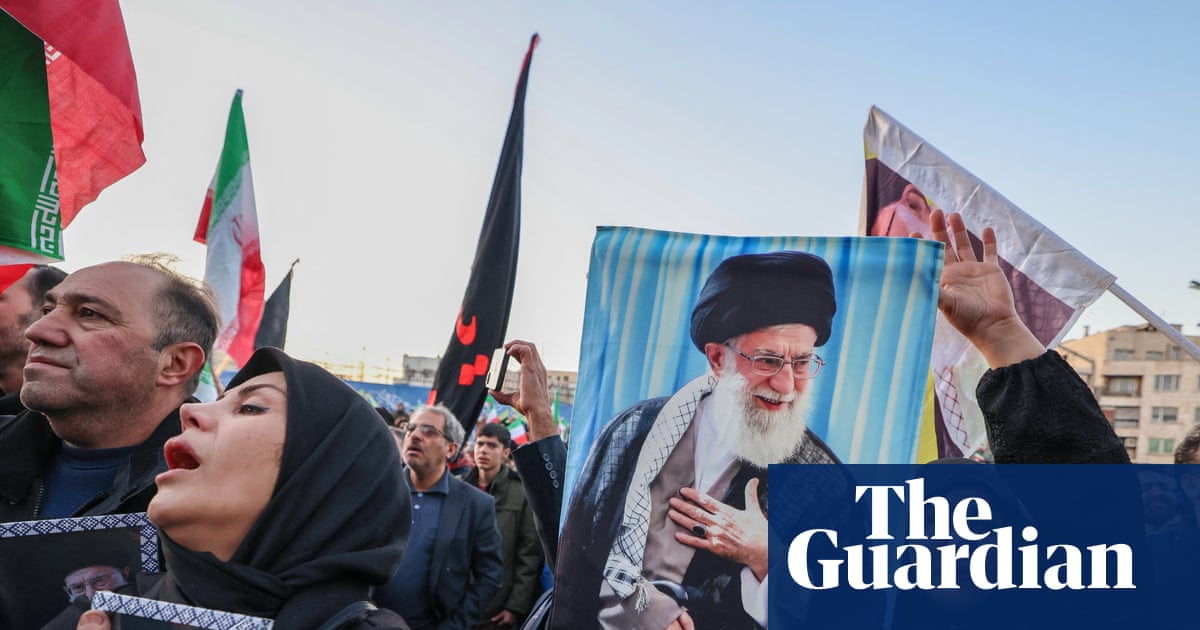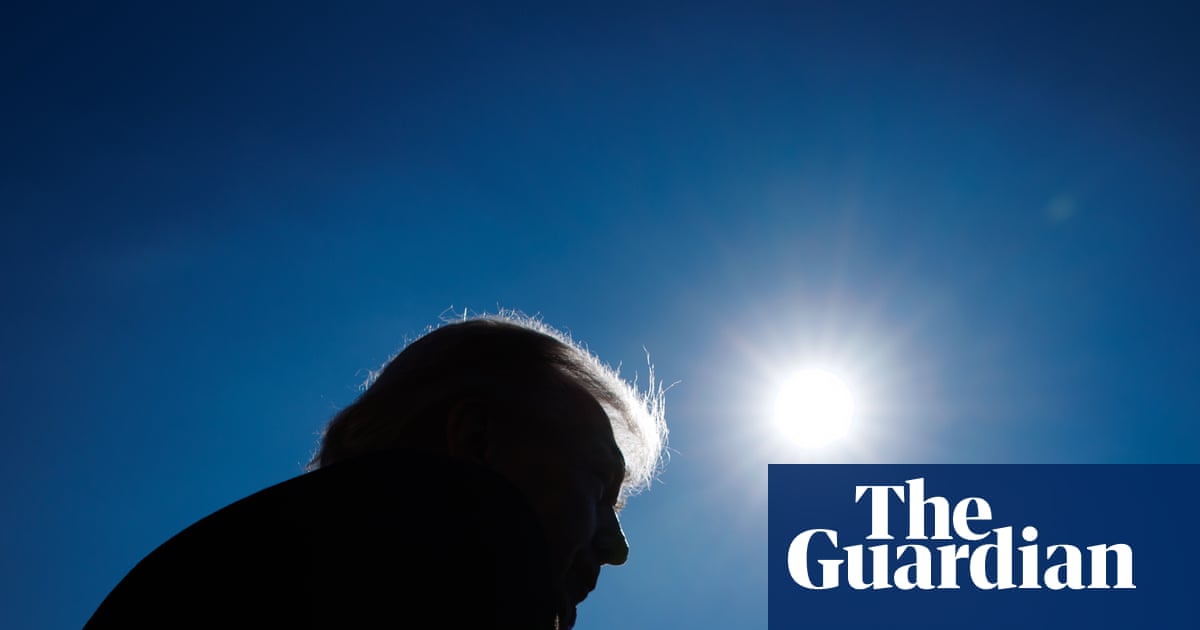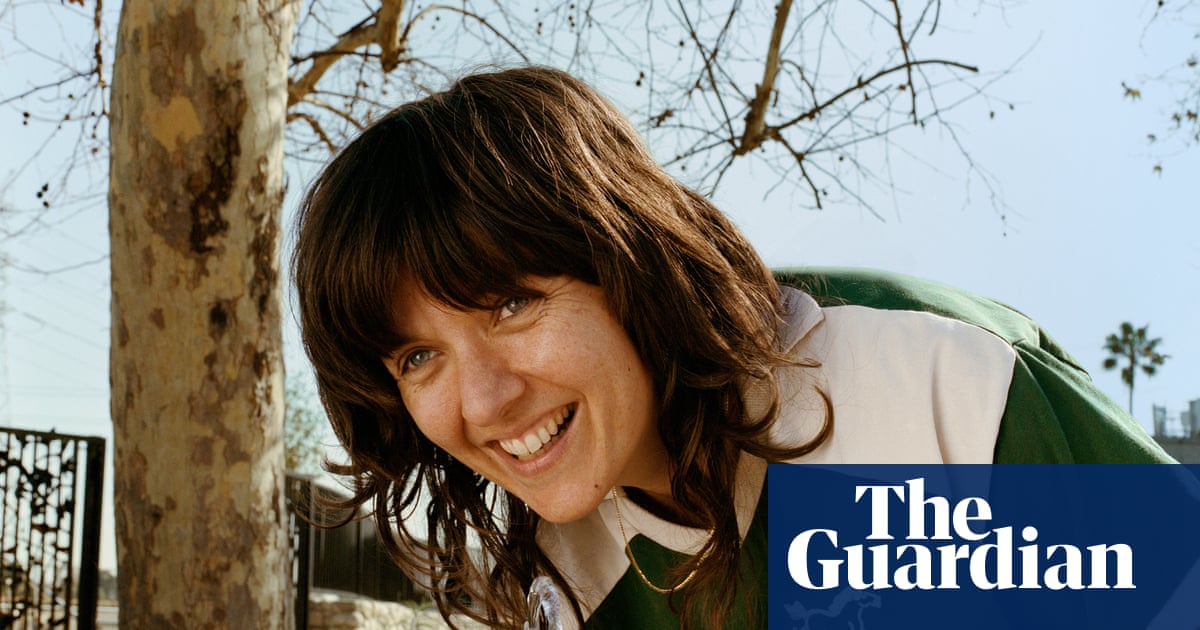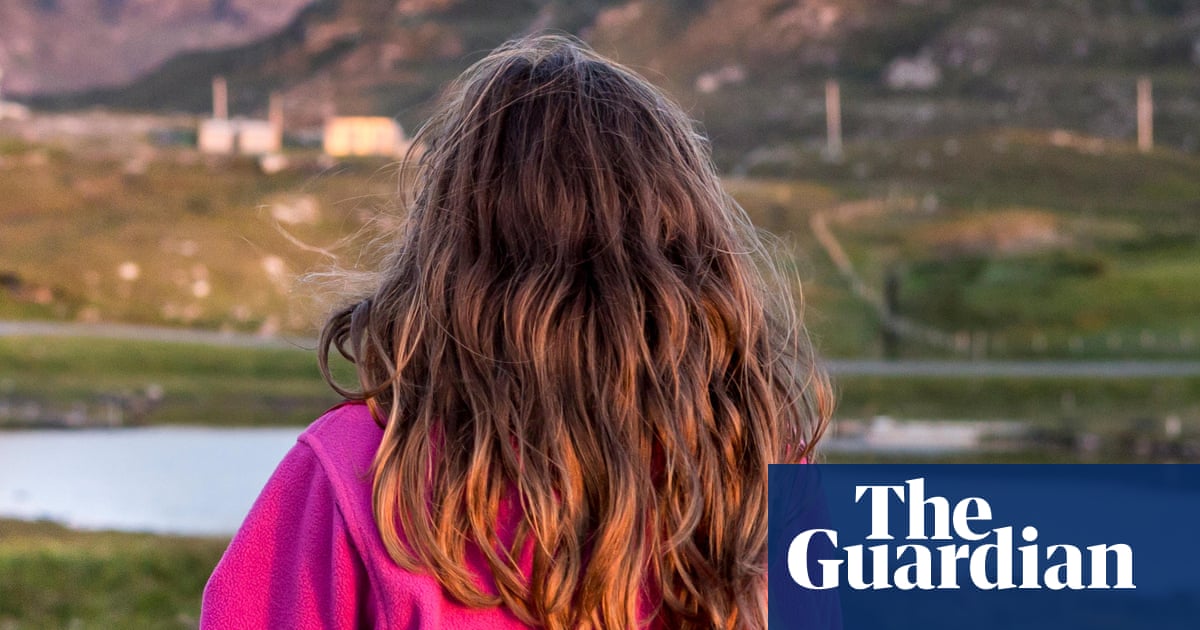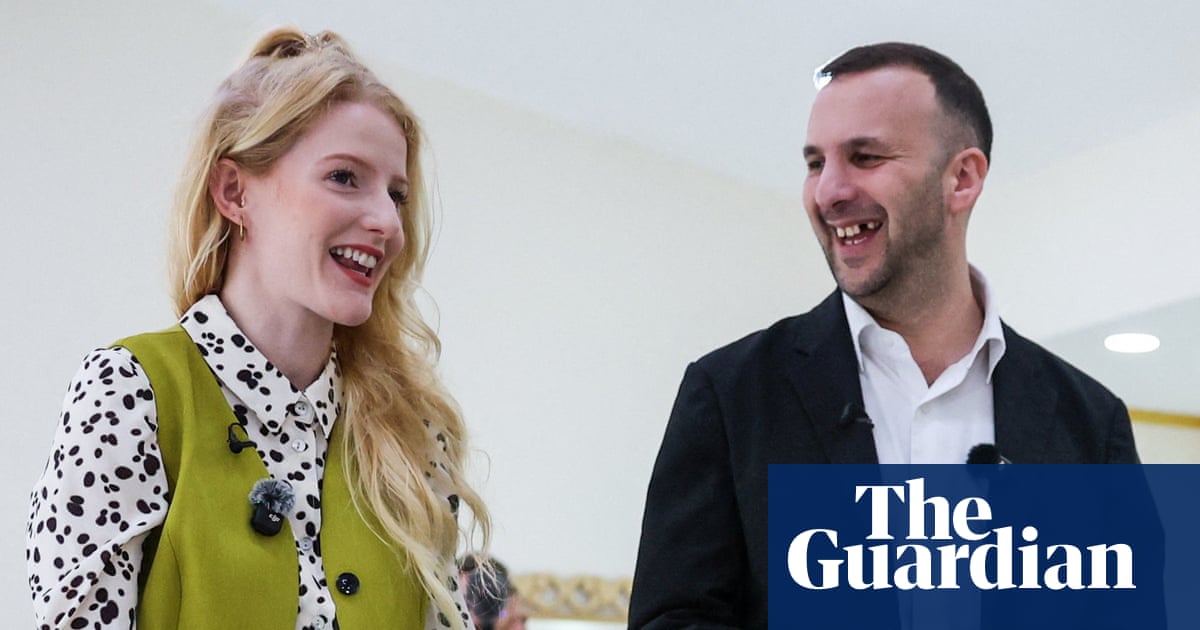Crawley is used to new faces. As home to Gatwick airport, millions of travellers pass through this postwar new town every year.
Some people get off a plane and stay, like the estimated 3,500 locals who came from the Chagos Islands and started new lives under the flight path. Others are plonked there by the Home Office. Relative to the size of its population, nowhere in the UK has more asylum seekers and supported (ie legal) refugees. At the most recent count, at the end of June, there were 1,729, equating to 1.43% of the town’s 120,000 usual residents.
“It might not sound much,” said Henry Smith, who was the town’s Conservative MP from 2010 until 2024 and defected to Reform UK in September. “But that is actually quite a large number of people when children have to be accommodated in local schools. People will tell you, trying to get a GP appointment, it’s very difficult, because of pressure on local health services. Housing is a real problem.”
Three Crawley hotels, as well as two in villages nearby, are being used to house these newcomers – 939 of whom are Afghans who came legally, if secretly, because they or their family members worked for the UK government or military.
One of the hotels was targeted by anti-immigration protesters in August after GB News claimed migrants there slept in four-poster beds and wore designer clothes and fancy watches. Others are visited by rightwing YouTubers who livestream themselves ambushing residents and staff.
It is these tensions that perhaps explain why the town’s Labour MP, Peter Lamb, would not contribute to this report, beyond saying in an email: “There is no way of dealing with this topic with sufficient nuance to avoid it increasing levels of far-right activity.”
He did, however, give a statement to GB News in the summer, blaming the previous Tory government for reopening the migrant hotels after the Afghan data breach. Lamb led Crawley council before becoming an MP and said he had seen how “the lack of move-on support by the Home Office for those granted leave to remain created a host of unnecessary problems for local authorities”.
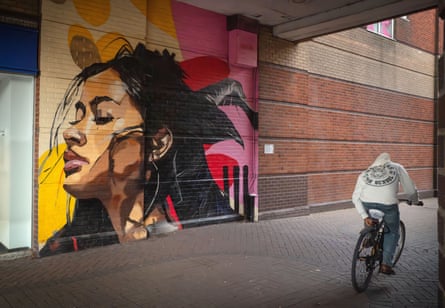
Many of the Afghan arrivals, like 35-year-old Jamal (not his real name), had been trying for years to come to the UK but were turned down.
He had worked as an interpreter for the British army on the frontline in Helmand province before being hunted down by the Taliban – with the bullet wounds, he says, to prove it.
Earlier this year, Jamal was suddenly told he could in fact come to Britain, because his personal details – along with those of thousands of other Afghans – had been leaked online after a Ministry of Defence blunder.
He said he “was shaking” on hearing the news and fearful for his family, who are in hiding in Afghanistan: “I’ve lost everything. I will be safe here because I’m in the UK, but my father, a young sister and a young brother are still there.”
Jamal touched down in London in May – at Heathrow, as it happens, not Gatwick – two months before the MoD’s secret evacuation programme became public. He was bussed straight to a huge conference hotel in Crawley, where he has been living ever since.
The hotel has four stars but Jamal insists he is not living a life of luxury. The floors are so thick with grease “you can skate in the hotel if you want”. He receives three meals a day from the buffet but “if you eat once this food you will never eat it again”.
He works at a warehouse, earning minimum wage, trying to scrabble together enough money for a rental deposit for when he is evicted in February. The Afghans can stay in the hotel for nine months and have received letters about the government’s “finding your own accommodation pathway”. In other words, they are on their own – particularly tricky for the Afghan families with five or more children and with shaky English.
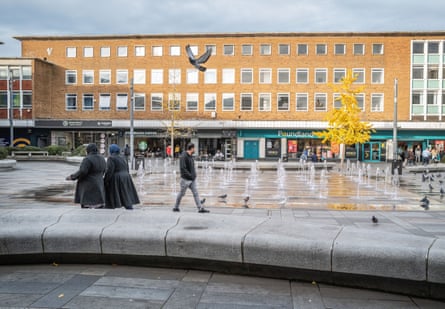
Schooling is another issue, with some Afghans complaining about long waiting lists. Since January this year, 19 Afghan children have been enrolled at one Crawley high school, along with eight others from abroad – a figure the school revealed after a freedom of information request from Reform UK. The headteacher insisted they were not “forced” to take the children. “We are very happy to support their education for as long as they are part of our community,” he said.
Much of Reform’s campaigning in Crawley has focused on the migrant hotels, supporting local protests. But they may be surprised to hear that Jamal agrees with the protesters.
“They are 100% right and I also want to be a part of them,” he said. He thinks many immigrants should not be allowed to stay in the UK, adding: “Some of them are criminals, some of them don’t follow rules, they don’t respect people, they don’t respect the system, they don’t respect the culture of the British people. So I am also against these kind of people and I [support] those who are coming to work here to support their families, who respect the system.”
He just wishes protesters had a better understanding of the sacrifices Afghans like him had made for Britain. “YouTubers are visiting the Afghans in their hotels and when I’m watching them and they are asking: ‘Why did you come to my country?’, there is no one to ask them: ‘Why did you come to my country?’”
Still, Jamal says the people he has met at work and at a cricket club have been friendly. But other Afghans complain that they and their children are often shouted at and abused in the park next to the hotel.
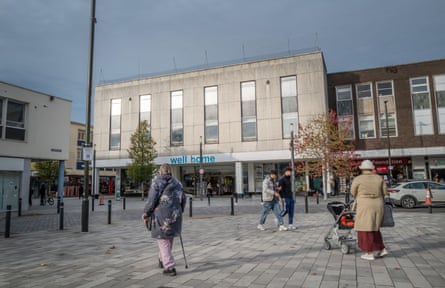
One man living nearby admitted his elderly mother was one of those doing the shouting. “She’s a bit of a racist,” he shrugged. But he didn’t like the hotel being used for migrants instead of conferences. “I’m not racist or anything like that, but it’s, how can I put it? The whole of the UK’s just messed up with it,” he said.
He was unmoved to learn his new neighbours once worked for the British in Afghanistan. “I’m just an old-fashioned UK resident and I wish that it would all stay old-fashioned. Like, you know, just the Brits,” he said. Asked what “British” meant to him, there was a long pause. “White,” he replied finally. “White British.”
Comments like this helped show why many groups working with asylum seekers and refugees refused to be quoted in this piece. Things are just too sensitive, they said.
Labour’s Michael Jones, who took over as council leader from Lamb in 2022, hung up when the Guardian rang to ask how he felt about Crawley being the UK’s asylum and immigration capital. Thirteen questions to the council press office went unanswered by the time this article was published.
The main problem in Crawley seems to be housing. Though you have to have been resident locally for five years to join the 2,500-strong social housing waiting list, the Afghans, and indeed the asylum seekers at the other hotels, will become the council’s problem if they end up homeless.
Crawley last year became the first English council to declare a housing emergency. But that had nothing to do with migrants, said Ian Irvine, a veteran Labour councillor who has the housing brief. Instead, it was the number of families being evicted from their homes, he said. From 2019 to the end of 2024, the number of households in temporary accommodation rose from 158 to 467.
The council has been given some money by central government to build social homes, with “around nine” reserved specifically for the Afghans, said Irvine.
He blames Reform UK, which came third in the general election in Crawley, for exaggerating the pressure migrants put on communities. “When I was first involved in housing in Crawley in the 1980s, all the blame was put on single mothers. Now it’s refugees and asylum seekers,” he said. “All the time people are looking for a scapegoat.”

.png) 3 months ago
74
3 months ago
74

